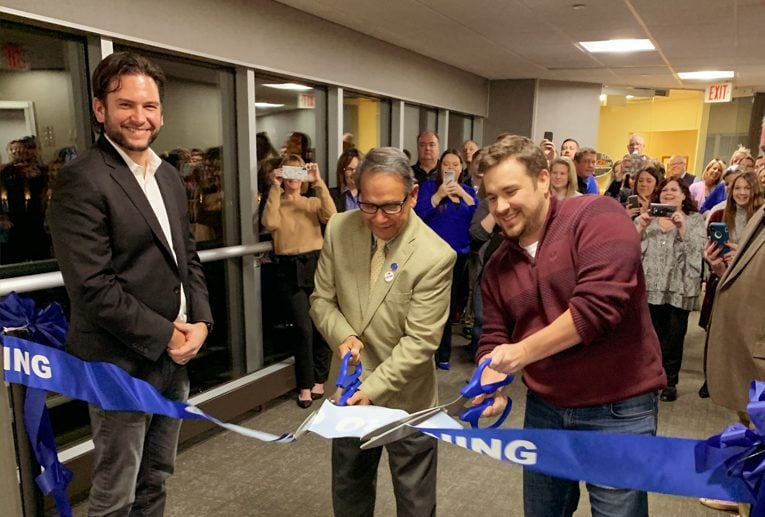Are you thinking about buying a new home? Do you already own your home and are considering refinancing? Getting the best mortgage rate can help you save thousands of dollars over the lifetime of your mortgage. Let’s look at how you can do that.
Getting the best mortgage rates begins with understanding how much you can afford. If you own your home, start by reviewing your current mortgage rates, monthly expenses, and income. If you’re buying your first home, start by reviewing your budget to determine how much you can comfortably afford to borrow – and payback. It’s important that you put yourself in the best position financially and not over-extend yourself. Tip: When you’re working on your budget, don’t forget to include any associated fees, such as legal or closing costs.
How are mortgage rates calculated?
Your financial profile (including your debt-to-income ratio and your credit report), how much you have for your down payment, and the current market are all factors that determine what mortgage rate you’ll be eligible to receive.
In a nutshell: the less of a financial risk you are, the lower the interest rate you’ll be eligible to receive. You can also take steps to make yourself less of a financial risk by improving any of these areas, such as improving your credit score or saving up for a larger down payment.
Improve your credit score
Your credit score represents your creditworthiness. It is a three-digit number starting at 300 on the low end to 850 on the high end.
The higher the number, the less of a risk you are to lenders and the better the interest rate you can get.
The following factors all contribute to your credit score:
- Your credit history
- How many open credit accounts/ credit cards you have
- How much you owe in total debt
- Your ability to pay back loans/ pay off any debts
- Your repayment history
Mortgage lenders use your credit score as a way to assess how probable it is that you’ll repay your loan on time.
And your credit score can make all the difference when it comes to getting the best mortgage rates. The closer your credit score is to 300, the more likely lenders will assume you will default on the loan, leaving them on the hook for the money.
To help your lender view you in the best possible financial position and have confidence in your ability to make mortgage payments in a timely manner, you can look to improve your credit score.
Simple ways to bump up your credit score include paying any bills, debts, or outstanding balances on time each month and making the total payment amount requested.
For credit card balances, carrying a balance can negatively impact your credit score. Paying off your total card balance each month is ideal, but if that isn’t possible and you have to carry a balance, try to keep the balance below 30% of your total available credit.
Review your credit score/credit history regularly, checking for errors or mistakes on your file. If you find any, try to clean them up before applying for your mortgage to ensure you get the best mortgage rates available.
Because your employment situation can factor into your overall creditworthiness, you’ll be more attractive to a mortgage lender if you have a minimum of two years of consistent earnings. This is especially valuable if your earnings are with the same employer.
Save up for a down payment
The more money you can put into a down payment, the better the mortgage rate you can get, especially if you can put together 20% of the total cost of the home you want to buy.
You can buy a home with a down payment of less than 20%, but with a conventional mortgage, it means paying private mortgage insurance (PMI), which can vary between 0.05% and 1% of your initial loan amount. PMI is paid monthly and is included in your total monthly payment. You can eliminate the PMI once you get your mortgage to below 80% of your home’s value and reduce your monthly mortgage bill.
Figure out what loan works best for you
Determining which loan is best for you is just as important as choosing which home will be most suitable for your family.
The mortgage “term,” sometimes called your loan’s “lifetime” or its “duration,” means how long you’ll be paying off your mortgage. Most mortgage lenders offer several options ranging from 10 to 30 years, meaning you will be expected to pay off the total mortgage within that timeframe.
- Longer terms mean lower monthly mortgage payments but higher interest rates.
- Short mortgage terms have higher monthly payments but lower interest rates.
Shorter mortgage terms can save you more money in the long run, but longer terms are generally more affordable monthly.
This is where knowing your budget can really make a difference.
If you can handle the higher payments for a shorter timeframe, it can make financial sense to opt for a more concise term. But if doing so will stretch your budget to its limit, it might be an unnecessary risk, making it more beneficial to pay the lower rates today. If your financial situation improves, you can always look to refinance your mortgage in the future, shortening the terms and reducing the interest rate.
When is the best time to buy? (mortgage forecast)
When it comes to mortgages, experts have conflicting perspectives and theories about whether mortgage rates will fall or soar due to COVID-19. Some authorities feel rates will rise because of the recent push for mortgage-backed securities (MBS). MBS are mortgages bought from banks and then sold as an investment.
Current historically low mortgage rates provide homeowners opportunities to refinance for financial benefit. In 2020, the US saw an almost 80% increase in refinances over 2019.
2020 produced unimaginable unpredictability. In its wake, 2021 is likely to be viewed as considerably more stable, which can benefit the market. While the COVID-19 pandemic isn’t going away anytime soon, and there might still be market upheavals or dramatic adjustments, slow and steady progress toward “normal” appears to be on the horizon.
Every homebuyer’s situation is unique, and the best time for you to buy a home might be different from your neighbor. To assess your financial situation accurately and evaluate what’s best for you and your family, reach out to River City Mortgage’s regional loan officers today.





